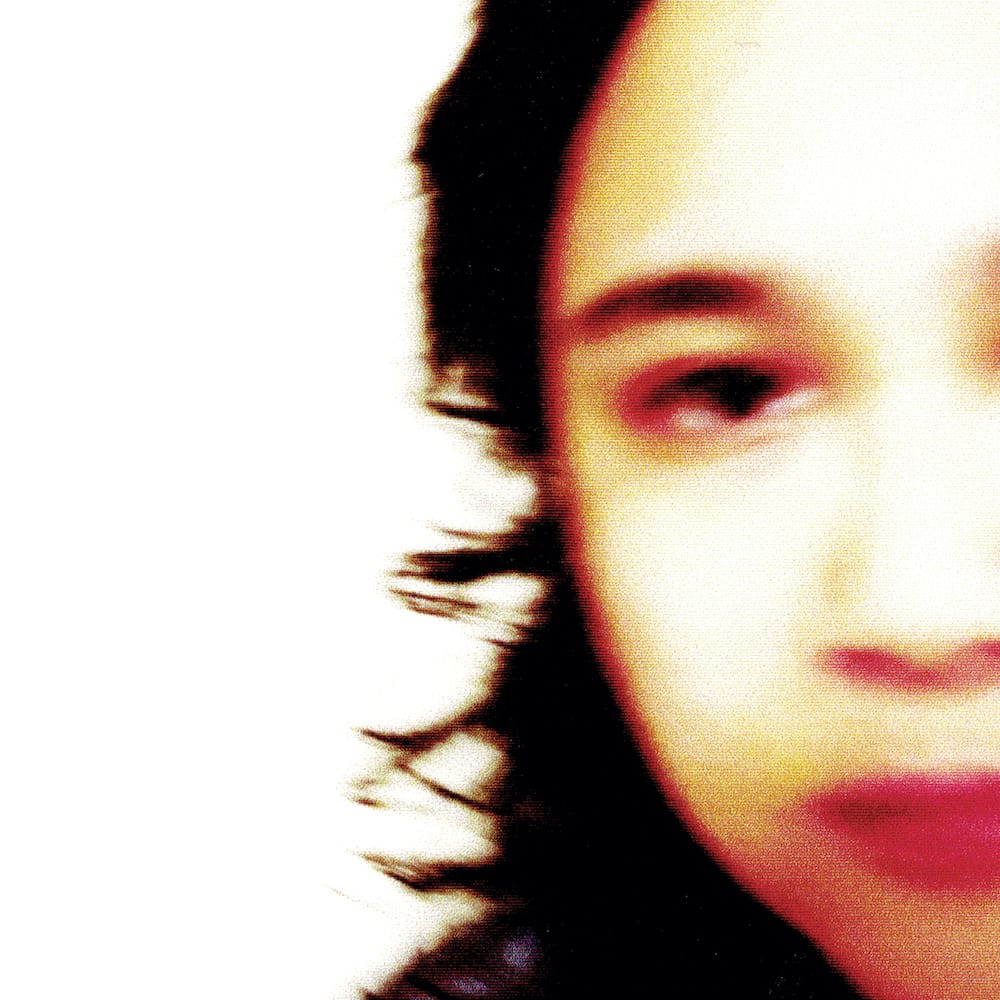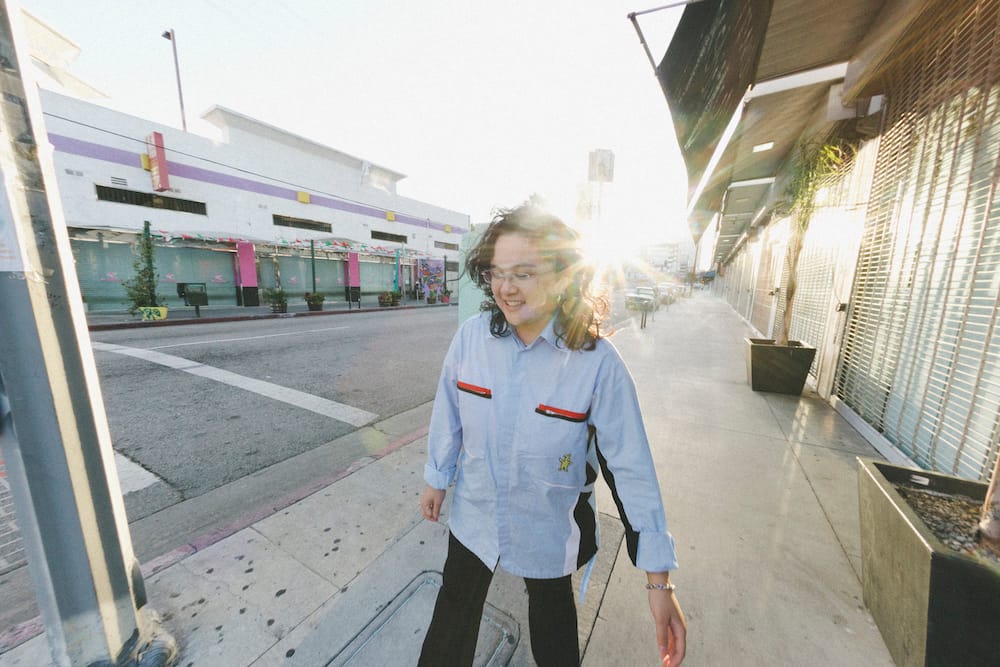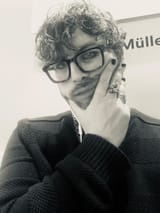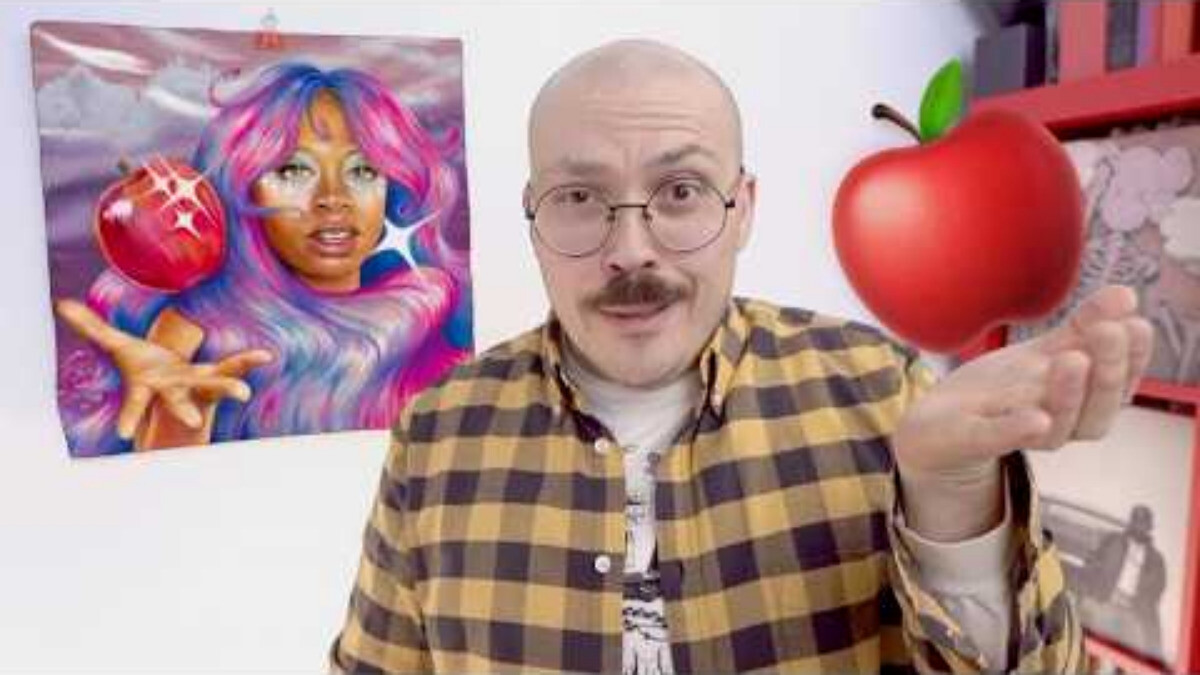Jay Som, the longtime recording project of musician, songwriter, and producer Melina Duterte, is back with its fourth album Belong, released last Friday, October 10. It didn't feel too long ago that Duterte was part of a generation of indie musicians who could make records sound as good from the comfort of a living room as inside of a professional studio. It's now been a whole decade since she foolhardily uploaded her songs in 2015 – which led to her signing to Polyvinyl.
Jay Som's first three full-length albums – the thrifty Turn Into, breakthrough LP Everybody Works, and the lush eighties dream pop-inspired Anak Ko – rapidly unraveled Duterte's remarkable ear for sound and melody. In the six years that followed, she reaped a ton of fruits away from the Jay Som-ship. Duterte became an in-demand producer for records like boygenius's Grammy-winning the record and Lucy Dacus's most recent album project Forever Is A Feeling.
Mainstream artists like Troye Sivan and beabadoobee started enlisting her talents, and during the pandemic, Duterte dropped the incessantly fun Doomin' Sun as Bachelor alongside fellow indie stalwart El Kempner (Palehound). Nevertheless, the Jay Som project kept chasing Duterte around like a hungry little reaper. Leveling up is great and all, but will the music still be good with more knowledge and more skills as intermediate agents? Can you still wing it and unfurl that elusive accidentally-on-purpose magic and silence thee inner critic when needed?
Almost by necessity, Belong became a less heliocentric affair than its predecessors, with Duterte embracing the role as mover and cutter – and not just the facilitator – within a more collaborative studio dynamic. It certainly helps that Jay Som's profile has risen enough to get some talented people into the fold, namely Paramore's Hayley Williams, Jimmy Eat World's Jim Adkins, and Mini Trees' Lexi Vega.
Duterte sat down with us to reveal more about Belong, and where Jay Som has found itself in this rapidly shifting scenery.
This interview has been edited for length and clarity.

Jasper Willems (@ TND): I don't want to talk in hypotheticals, but I wonder how you've seen the music landscape change over the past 10 years. Do you believe that if you were starting out now, you'd be able to get the same opportunities?
Melina Duterte (Jay Som): I feel like it is harder to be a musician now. It's even harder to be a smaller musician. I mean, I'll start by saying that the glaringly obvious one is Instagram: social media is so much more different now. None of your followers will see what you're posting. It feels like 1% of your followers, because the algorithm favors people that post every single day, multiple times a day. Unless you love social media and you're super into it and you want to play that game, then you just won't find success in that department.
And that's something I'm struggling with. I feel, now that I'm getting older, I don't know how to do that. I don't know how to post every single day, all day. You know, content is the game nowadays. You know, I see friends and peers from the past that are playing that game now. And I'm like, "Oh my god they're doing 'Get Ready With Me'-videos now." I noticed you have to fabricate some sort of authenticity or maybe you have to be even more of an open book. I also think I don't see blogs as much anymore. [At least] I don't. Personally, I don't find music as much from where I used to find music before: at Bandcamp and SoundCloud and blogs and word of mouth. Or even Facebook. Everything is pretty much streaming.
I think about how things started for you: you impulsively dumped your unreleased songs on Bandcamp after drinking a little wine. And how that act materialized into where you are now. It felt really wholesome and honest. When you talk to younger artists, do you think they have to compromise more now to get similar attention from the industry or labels? Are there more caveats?
I think it’s a choice. If they want to go the extra mile and really dig in. You do have to dig in to feel heard. You can be yourself, but I don’t think that matters as much anymore, and it doesn’t necessarily matter if you’re a really good musician or songwriter. It’s oversaturated — maybe it always has been. Maybe I’m just a jaded boomer getting older in the music scene.
But I see younger kids now and I’m like, ‘Hell yeah, keep doing what you’re doing!’. Be yourself. Keep experimenting. Release as much music as you can. Don’t keep it a secret. Self-release or put it out with your friends’ label. Say yes to things. Work with people you’d never think you’d work with. Say yes to collabs. Flex those muscles as much as you can when you’re young. You have the energy, and people will remember you and want to work with you.
I believe that’s true not just for new artists, but for musicians in general. You just saw what Hayley Williams recently did with those 19 singles. I feel there’s a sea change right now where artists are like, “Let’s just do whatever." Release four EPs at once! Or – like Tyler, the Creator – dropping a record on a Monday instead of a Friday. I notice a crack in the machine’s armor, which is encouraging. And because you also work with Hayley on “Past Lives”, do you have general thoughts about that?
Yeah, it’s definitely a reaction to the model of what’s going on in music right now. I think everyone’s striving for something different, because whatever’s happening now isn’t working in a very obvious way. With Hayley, she’s an artist through and through, and an insanely kind and talented individual. She’s having a moment where there’s not much Paramore activity, so she’s a free agent in a way, saying yes to things she couldn’t say yes to before. To me, that just makes her look even cooler and makes me respect her even more. And I’m biased, too, because she’s on my record. And I feel really lucky about that.
I was thinking about your role on Belong: during the hiatus of Jay Som, you’d been making records for other people and working more in the background. Was there an empathy moment, like, “I’m producing someone else’s album; now I can look at my own role differently”?
A hundred percent. When I started recording people in my late teens and early twenties, it was just friends, word of mouth. I’d do it for free, for lunch or dinner, $25–$50 a song, or as a trade. When I began doing it more professionally, it became my school. I didn’t go to college beyond some community-college gen-eds and music associates; the real education was being in the studio with people. Often folks I didn’t know.
Friends, friends of friends, and acquaintances started reaching out to have me mix their EPs, engineer a song, or whatever. I worked with solo artists, then with bands. With four or five people in a room, you learn group dynamics fast: there’s usually one ringleader trying to steer everything, and at least a couple who don’t care much. Production is mostly the non-musical stuff: anticipating needs before anyone can name them. When you’re a producer and engineer, you’re also low-key a therapist, a cheerleader, a friend. You’re the person who says, “We’re hungry — let’s walk!” because changing the room’s state matters. It’s about staying positive. It’s also hard, because you put other people’s needs before your own for the sake of the music. It’s vulnerable work.
A friend of mine once said, after we spent a week on a project, “This was my whole life for a week — and you do this all the time.” That’s exactly what it’s like. Applying that to my album made everything faster. I’d say, “Okay, two hours on this,” and bring in a friend to tell me if I’m making a mistake, like adding the wrong guitar part or overthinking something. I needed someone in the room to co-produce. The biggest takeaway from doing Belong is that I can’t do it all by myself anymore.
It’s wonderful how you describe it: the producer has more roles than just the person making sure the music is captured in a cool/honest way. Now that you have friends you can trust — you trust their ears and sensibilities — and those people trust you, does it allow you to pay attention or be more of a wild card on your own project? Focus more on details, or be more all over the place on your record?
Yeah, definitely pretty different. It’s cool you say that, because I had this strong reaction from producing and working on other people’s records. When people ask me to work with them, it’s pretty indie based — sometimes singer-songwriter, which is what I’ve done before in my earlier records.
There comes a point, especially when you’re a producer who makes your own music, where you want to experiment a little more. I wanted to do alternative rock. Sometimes that can be a corny move: quite the choice to do alternative rock or pop rock. But I wanted to see if I could do it. I was really interested, especially after producing so much indie and indie rock and shoegaze music. Even with "Cards On The Table", I wanted to do something different rhythmically and be more inspired by the pop music I’ve been listening to lately.
And yeah, it felt a lot easier to experiment because I’ve been in so many sessions with other people where I have to experiment for them. I have my own pedal board chain, and admittedly I have a lot of gear now because I’m obsessed with gear — obviously that can be a whole different interview [laughs]. It was really fun.
Can you be specific about the pop artists you were listening to — who was on your radar?
I don’t know if it’s a direct inspiration, but Charli XCX, what she did with BRAT, was like, wow! Calling back to what millennials grew up on with very direct songwriting, arrangements, and production. It’s exciting and energetic; there’s a linear thing happening that’s so special. Also Addison Rae, her new record; when the singles dropped, I was really into what was going on there. And, specifically for “Cards On The Table”, I was really influenced by Frou Frou.
I’m wondering about what I call the “Whoa, this actually works” moment — when you try something out of curiosity, combine certain things or a recording idea, go into the deep end, and then you’re like, “Fuck, man, this actually sounds great.” Can you name an example within the studio process of Belong where that happened?
Oh, yeah, let’s see. I did a lot of Voice Memo recording. Sometimes the easiest way to record melodies and vocals and come up with lyrics phonetically is: I play the song on my speakers, put my iPhone in front of me in Voice Memos, and just improvise. Pretty much every song was written that way. The song “Meander/ Sprouting Wings” is just the demo: how I recorded and wrote it on the spot.
I recorded a piano idea; my iPhone recorded vocals; I came up with lyrics on the fly, which was really fun. In Pro Tools, I took the two tracks, bounced them together, put Melodyne on the vocal track, and auto-tuned it as well. The piano track and the Melodyne vocal Voice Memo track kind of shift out from each other in a weird, modulated way. That’s one of my favorite moments from the record. I love putting weird tracks together like that — it has a really interesting sound — and that comes up throughout the record for the more unique sounds.
Funny, I was going to ask about that song. I love the piano sound and the digital/piano juxtaposition; that piano sounds old. Do songs ever come to you after a recording idea materializes — does the meaning arrive later? Or the other way around: you have the song and immediately know the production ideas that give it depth? How does that work for you?
It’s a mixed bag. With “Float”, I knew immediately: drum loop, bass line, chord progression, chorus. I was like, “Okay, this is my Cloud Nothings song,” also inspired by Jimmy Eat World, and I really like the band Phoenix. It's an energy thing for me. I could hear the energy in my head, then it was just puzzling it out. For “Float”, it was easy — chuggy, palm-muted guitars, boom boom boom, big chorus: “Let’s get Jim Atkins on there.”
So that was pretty easy. But with the last song, “Want It All”, I’m still confused — how it came to be, what it means. That one felt like guessing at inspirations and reference points. Some songs come easily in production; others I don’t want to overthink. I love living in the mysteriousness of songs. When I overthink what a song means or what it should sound like, it loses its charm. That’s why I love releasing albums — people will say, “This song means this to me,” or “I hear this artist you’re influenced by,” and I’m like, "Wow, that’s cool!"
Do you ever mourn losing that early mystery? [Before release] the record is still yours — mysterious and in flux — aside from a few people hearing it. I’m thinking about the conversation around one of your older songs, “The Bus Song”: all the theories about its imagery and how it triggered the “politics of riding the bus” in America. It was a seed that grew into a whole discourse. Do you feel a part of you mourns that — or do you think, “It’ll happen to these songs too”? Since you’re so deep in the writing process and have heard these tracks so many times, what’s your sentiment?
I feel great about it. Writing and recording are very personal to me. I have a heavy hand and I’m very controlling with this project, but sharing is beautiful. I release the songs, and people get to have their own meanings and experiences. I never want to influence that. When people ask what songs are about, sometimes I’m like, “I have no idea.”
I figured it out two years later — maybe I was going through something. People blend together in a song; nonfiction and fiction moments blend, so I care and I don’t care. It’s cool to let go and let people experience it. I like to separate myself from the end product as much as possible. I like to let go of what I spent hours, days, weeks, and months laboring over. Especially with creative work, I don’t like to hold on too long.
Sounds like a really healthy mentality, but it makes me wonder: looking back at older records like Anak Ko, did you have those light-bulb “Whoa, I was writing about that!?”-type moments? With a six-year gap, did some songs dawn on you more over time?
Yeah. What pinged most was realizing I was very young and confused, and I kept writing about escape. I think it was Michelle [Zauner] from Japanese Breakfast who said everyone has a theme, and mine is transportation and wanting to go somewhere. That’s true —“The Bus Song,” “Superbike,” and there’s a song on this record about moving.
Maybe I’m using music to escape from something; I don’t know exactly what or why. In the early records, that tracks — when you’re young, you’re confused, dating, figuring out friends and work. I didn’t know I’d be a full-time musician. I thought I’d work in food, and doing music as a hobby. It feels good to be on the other side.
Belong is out on now via Polyvinyl. Order your copy here.




What do you think?
Show comments / Leave a comment